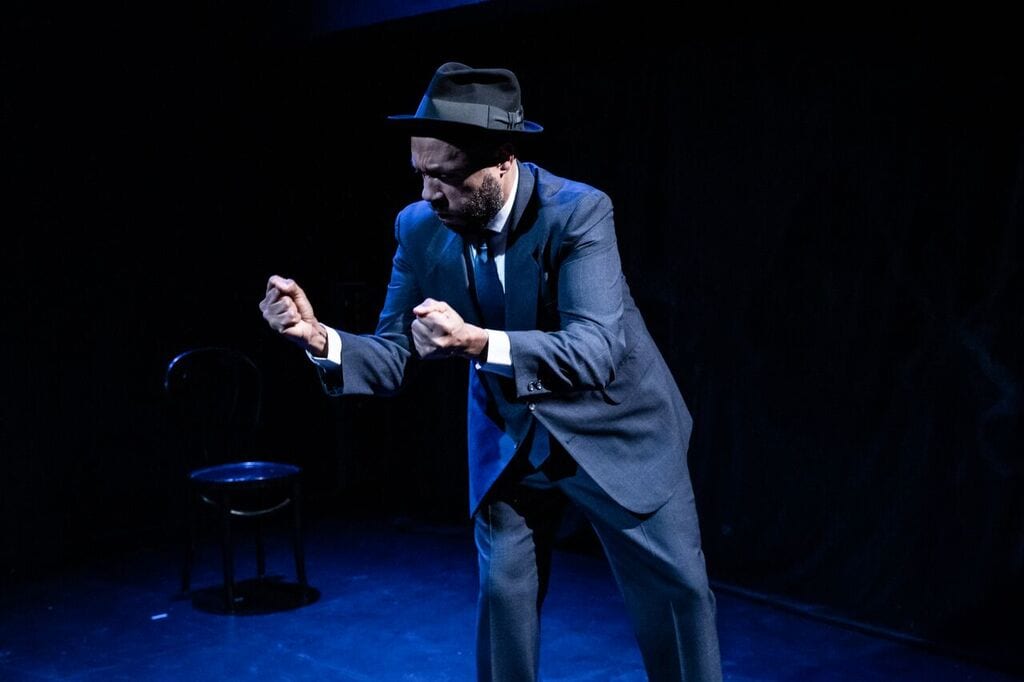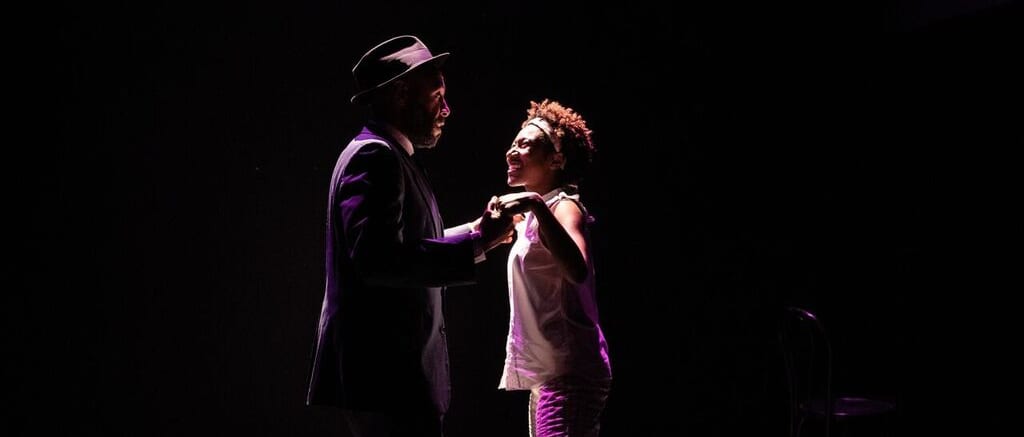Monica Bauer’s Vivian’s Music, 1969 – currently at 59e59’s Theater C, under the direction of Glory Kadigan – is a “fantasia” inspired by real events: the murder of a fourteen-year-old black girl (Vivian Strong) by a white police officer in Omaha, Nebraska, in 1969, which sparked days of rioting. All that is known about Vivian is her name, age, and cause of death, so Vivian’s Music is Bauer’s attempt “at giving her a life.”
The play consists of dual, direct-address monologues, alternating between Vivian (Kailah S. King) and a fifty-year-old black jazz musician and would-be club owner, Luigi Wells (Russell Jordan). The transitions between monologists are accomplished by Benjamin Ehrenreich’s simple and graceful lighting. The actors, on a mostly bare stage (there is a single chair), are charged not only with bringing their characters to life, but also inhabiting other characters along the way: Vivian portrays her sister and mother, her teacher, and her boyfriend Duane, while Luigi voices his own mother, as well as his white employers and a bank loan officer, among others. The performances are all the more impressive given that on the night I attended, in the tiny black-box theater, it was a restless audience with hacking coughs, pinging cell phones, whispered conversations, and myriad lozenges to be loudly unwrapped. This isn’t the place for a rant against the deteriorating etiquette of theater audiences, but Jordan in particular would have been more than justified in breaking character and scolding the members of the front row, mere inches from him. However, he showed absolute poise in continuing without any indication of distraction.

In King’s capable hands, Vivian is both precocious and childish, wise and petulant, sweet and feisty. Although to us she’s a dynamic presence, her talent in the world is invisibility: “I see things other people don’t see, on account of I can be anyplace and nobody sees me. It’s my talent. Helps me figure out what’s what pretty quick.” Luigi is charming and ironic, a former cad who is trying to settle his late mother’s estate—specifically, he needs to pay back taxes on the Dreamland Ballroom music club and try to raise capital so that it can permanently reopen. His source of income is teaching drums to a young white girl in the Polish section of Omaha, where he befriends his employer, George Hollewinsky, a gruff, friendly, and talented accordionist. Music briefly bridges the racial divide, but George’s sympathy goes only so far.
The monologues wander pleasantly, almost seeming aimless at first, but soon the pieces for the devastating conclusion are all aligned. Although some of the writing is too broad, flirting with clichés, and some of the themes are clumsily telegraphed or treated without enough complexity, both actors overcome this by inhabiting their characters with nuance and conviction. Luigi’s and Vivian’s stories eventually intersect, even if the characters never do (outside of a dream), with a revelation that I won’t give away here. At its best, under Kadigan’s astute direction and with two excellent performances, the production achieves lyrical beauty and emotional power, addressing a historical incident that remains all too relevant today.

